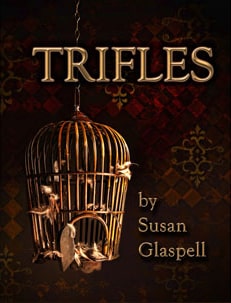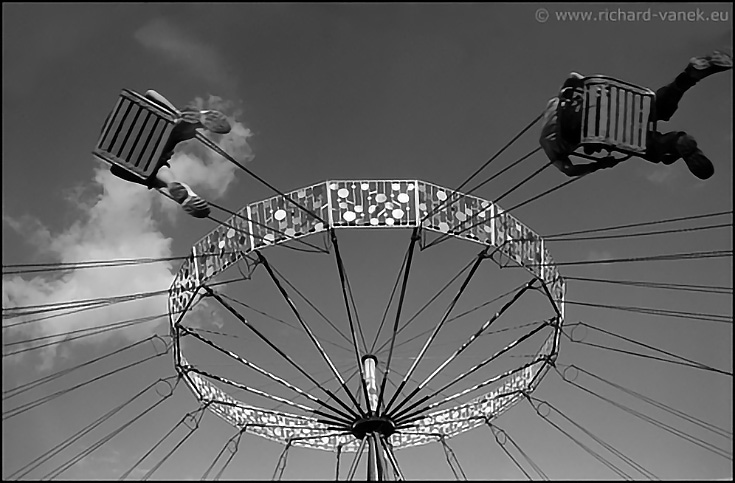"Life is essentially a cheat and its conditions are those of defeat;
the redeeming things are not happiness and pleasure but the deeper
satisfactions that come out of struggle."
- F. S c o t t F i t z g e r a l d
Minnie Wright lived in a bright world, a world worth singing about, before she met her husband John. After she married him, he took the music right out of her. It could be inferred that John just didn't like music, but other details and lay testimony proves that he was just a mean, cold man - cold like the weather that seemed to surround the Wright home. This dreary scene caused those who could've saved Mrs. Wright from her silence to stay far, far away. So the question becomes this: when Minnie kills her husband for literally choking the song out of her life, can we really blame her? Without a doubt, it's wrong to murder a man, but just as Mrs. Peters and Mrs. Hale, the wives who witnessed the downfall of the home, discover the truth about Minnie's crime and dismiss it, could we do the same? This is a woman who would rather spend her life alone and paying for the awful thing she's done than to allow her husband to make her feel as he has.
We are left with quite a decision, just as Mrs. Peters and Mrs. Hale are. Are we to convict Minnie? Are we to say that without another choice, she should have continued to suffer? Just as is appropriate, the weather is never just the weather, and perhaps her "peers" should've taken note to the snow.
Likewise, maybe Joe should've taken note to Mr. Slemmons' big talk about Joe's wife. Had he paid more attention to all of Otis D. Slemmons' put-ons, he might've seen his own slighted love story coming before it did. On the surface, everything seems fine, everything seems shiny and wonderful, and underneath, it's just ordinary. Underneath, it may even be tarnished. The Gilded Six Bits by Zora Neale Hurston teaches us that this world is to the strong. In order to make it, you have to be the best that you can be. In order to ensure that you get what you want from the situations you encounter, you have to be genuine and true. This story brought me to an understanding that you can't paint trash gold, and that there are times when it is okay and acceptable to give up when it's not as precious as you wish it was. In this situation, if I could give Joe all the confidence in the world, I would. To me, Joe deserved to have Missy Mae leave him just so he could finally get his gold -- probably in the future. In my life, it is hard for me to allow some vulnerability with anyone because of stories such as this. Maybe that's a bad thing, or maybe it's protection. Either way, maybe one day I'll find something authentic and worth that side of me.
Still, where would we be without our dreams? Without a reason to keep pushing, would we do it just for the sake of doing it? Dexter Green may not have had many ambitions before he met Judy Jones, but afterward, he knew exactly what he had to do in his life. He begins to associate his dreams and goals for his life with Ms. Jones, knowing that whatever he does, it has to be something that would impress her. He may have her a couple of times after most of his successes, but somehow, she never quite fits. Perhaps Judy was never the type of woman who really fit into success and accomplishment on the inside - perhaps she was gilded and plated with these things on the outside only. Whatever the case, Dexter feels the loss of Judy when she settles for less than what he thinks she deserves. With her fall, he mourns the non-fulfillment of his dreams and comes to the realization that what he wanted has always been just out of reach, even if he thought they could be.
You hear it all the time: "Marriage/Love isn't a carnival ride." -- and perhaps it isn't. If we were to accept this as true, then there would be only bad times. So how can we take their word for it? If they could speak for themselves, I think Joe, Dexter, and Minnie might tell us that at one time, they thought love was the peak of the ride and that the dive and fall gave them butterflies. Even those these may be non-conventional stories, it's safe to say that the endings of them qualify as the ride that makes you nauseous. By definition, I think that love is a carnival ride in Trifles, The Gilded Six-Bits, and Winter Dreams.








